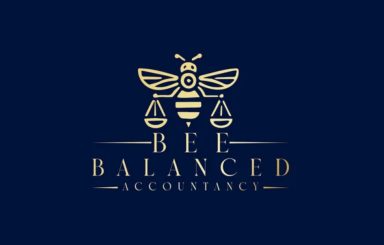
Demystifying Tax Obligations for Business Owners
As a business owner, understanding your tax obligations is vital for staying compliant and avoiding unnecessary stress or penalties. During a recent networking event, I discovered that many local business owners face confusion about Self-Assessment tax returns, year-end accounts, Corporation Tax filings, and VAT returns. This blog post will break down each area, provide practical insights, and explain how to manage these responsibilities effectively.
1. Self-Assessment Tax Returns
Self-Assessment is how individuals report their income to HMRC. It applies to sole traders, partnerships, and directors of limited companies.
Who Needs to File?
- Sole Traders: If you earn over £1,000 from self-employment.
- Directors: Even if your income comes from dividends or is below the Personal Allowance threshold.
- Landlords: If you earn rental income exceeding £1,000 annually.
- High Earners: If your income is over £100,000, or if you have untaxed income.
Key Steps in Filing:
- Registering: You must register for Self-Assessment by 5 October following the end of the tax year in which you started earning untaxed income.
- Gathering Records: This includes invoices, receipts, pension contributions, and any P60 or P45 forms.
- Calculating Allowances: Deductible expenses, such as office costs or travel, reduce your taxable income.
Deadlines to Remember:
- Paper Returns: 31 October
- Online Returns and Tax Payment: 31 January
Penalties for Non-Compliance:
- Late filing results in an immediate £100 penalty.
- Additional fines accrue after 3 months, 6 months, and 12 months.
Pro Tip: Consider using accounting software or working with a bookkeeper to stay organized throughout the year.
2. Year-End Accounts
Year-end accounts summarize your company’s financial performance and are a legal requirement for all limited companies in the UK.
What’s Included in Year-End Accounts?
- Profit and Loss Statement: Details your income, expenses, and profit over the year.
- Balance Sheet: Shows assets, liabilities, and shareholder equity as of the financial year-end.
- Notes and Directors’ Report: Include additional details about company performance and governance.
Who Prepares These Accounts?
Most companies rely on an accountant to prepare their year-end accounts. However, small businesses can use software tools for simpler filings if they meet specific criteria (e.g., micro-entities).
Deadlines:
- You must file accounts with Companies House within 9 months after the end of your financial year.
- For new companies, this deadline may differ based on your incorporation date.
Penalties for Late Filing:
- Up to £150 for being 1 month late.
- Can increase to £1,500 for delays beyond 6 months.
Common Mistake: Forgetting to file accounts for dormant companies. Even if your company didn’t trade, you still need to submit accounts to Companies House.
3. Corporation Tax Filing
Corporation Tax is payable on the profits of a limited company. Unlike Self-Assessment, this tax focuses solely on the company’s financial activities.
What Needs to Be Filed?
- A CT600 form (Corporation Tax return).
- A copy of your year-end accounts submitted to HMRC.
Key Deadlines:
- Pay Tax: 9 months and 1 day after your company’s accounting period ends.
- File Return: 12 months after the end of the accounting period.
Allowable Deductions:
- Business expenses (office supplies, marketing, etc.).
- Capital allowances (for equipment, machinery, and vehicles).
- Research and Development (R&D) Tax Relief (if applicable).
What Happens If You Don’t File?
HMRC imposes a £100 penalty for late filings, which can increase over time. Late tax payments incur interest, and persistent non-compliance may lead to further investigations.
Pro Tip: Submit your CT600 early to avoid last-minute issues and ensure you have enough time to pay your tax bill.
4. VAT Returns
VAT (Value Added Tax) is charged on most goods and services in the UK. If your turnover exceeds £85,000, you’re required to register for VAT and submit regular returns.
What Does a VAT Return Include?
- Output VAT: The VAT you charge on sales.
- Input VAT: The VAT you pay on purchases and expenses.
- Reclaimable Amounts: If input VAT exceeds output VAT, you’ll receive a refund from HMRC.
Filing Frequency:
- Typically filed quarterly, though monthly or annual options exist for some businesses.
- VAT returns must be submitted within 1 month and 7 days after the end of the VAT period.
Common VAT Schemes:
- Flat Rate Scheme: Simplifies calculations by applying a fixed percentage to gross turnover.
- Cash Accounting Scheme: Pay VAT only when invoices are paid, not when issued.
Challenges in VAT Management:
- Ensuring accurate classification of VAT-exempt and zero-rated goods.
- Managing the Making Tax Digital (MTD) requirements, which mandate digital record-keeping and submissions via compatible software.
Late VAT Penalties:
HMRC’s penalty points system applies to late submissions, with fines issued after repeated non-compliance.
Pro Tip: Keep your VAT records organized and reconcile regularly to avoid errors.
How to Stay Ahead
Managing your tax obligations doesn’t have to be overwhelming. Here are a few tips to stay compliant:
- Use Software: Platforms like QuickBooks, Xero, or FreeAgent simplify record-keeping and integrate with HMRC.
- Seek Professional Help: A qualified bookkeeper or accountant can save you time, money, and stress.
- Plan Ahead: Set calendar reminders for key deadlines to avoid late submissions.
- Keep Records Organized: Retain all financial documents, such as invoices, receipts, and bank statements, for at least 6 years.
Need Help? Let’s Talk!
Navigating Self-Assessment, year-end accounts, Corporation Tax, and VAT filings doesn’t need to be a headache. At EHBS, we specialize in helping business owners understand and meet their tax obligations with confidence.
Whether you need a one-off consultation or ongoing support, we’re here to make your financial management stress-free. Get in touch today to learn how we can help your business thrive!
© Copyright. All rights reserved.
We need your consent to load the translations
We use a third-party service to translate the website content that may collect data about your activity. Please review the details in the privacy policy and accept the service to view the translations.
